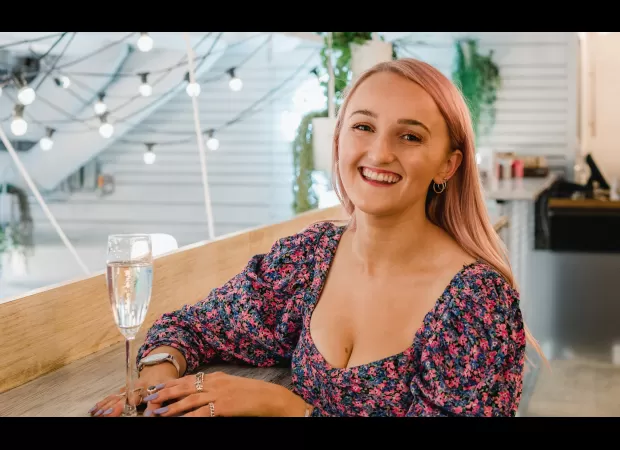I used to be a wild one, but now I don't remember where I am when I wake up.
Untangling the cycle was a challenge.

Millie Gooch, now 32, found her life transformed when she first went to university. As an 18-year-old, she was swept up by the UK university drinking culture. In order to fit in, she quickly found herself going from having the odd WKD at a family gathering to binge drinking several nights a week.
This was a common experience, as a survey by Students Organising for Sustainability found that 81% of students thought that drinking and getting drunk was part of university culture and more than half drank more than once a week. Millie was no exception. Her drink of choice became ‘two triple vodka-and-Red-Bulls poured into a pint glass’.
After graduating from the University of Sussex in 2011, Millie’s drinking habit didn’t stop, but rather intensified. Her job in PR and as a magazine journalist exposed her to an incredibly booze-heavy industry, with tons of networking events and free-alcohol Fridays.
Millie had crafted her ‘whole persona’ around being a party girl, but eventually the hangxiety took over. ‘Hangxiety’ is the dreaded combination of feeling anxious while being hungover, which can be a result of both not knowing what happened and withdrawals from alcohol. Millie’s hangovers were lasting longer and longer, and she found herself ‘self-medicating’ with alcohol.
That's why, in 2018, Millie decided enough was enough. She had a sense of clarity and realized she couldn’t keep living like this. She left the media industry full-time, choosing to work as a freelancer from home and start her own organisation, Sober Girl Society.
Now, five years on, Millie is completely sober and is happier for it. She credits non-alcoholic drinks and her sober friends for helping her stay on track, saying she feels a lot calmer now and is able to manage her mental health a lot better. She is no longer creating her own problems and disasters, and is much happier. Millie’s story is a testament to the power of sobriety.






